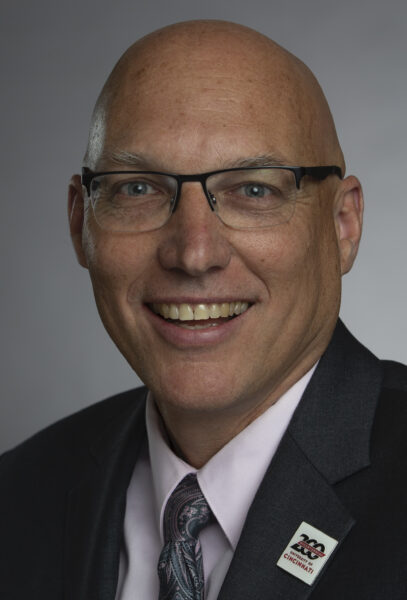
- This event has passed.
CBE Centennial Seminar Series: John Weidner (Univ. of Cincinnati)
February 9 @ 9:30 am - 10:30 am
Abstract
Modeling Battery Performance Due to Volume Change in Porous Electrodes
In order to accurately predict the behavior of electrochemical devices, it is necessary to develop sophisticated models that take into consideration transport processes, electrochemical phenomena, mechanical stresses, and structural deformations on the operation of an electrochemical system. Several different models exist that can predict the electrochemical performance of these devices under a variety of operating and design conditions. However, in many of these models, the porosity of a porous electrode is often assumed to be constant since the volume changes seen during the intercalation reaction can be small. However, electrode materials developed in recent years show significant volume changes during intercalation, which are unable to be accurately predicted using these constant porosity models.Porosity and dimensional changes in an electrode can significantly affect the resistance of the battery during cycling and can cause premature failure of the battery due to generated stresses. Over the past decade and a half, we have shown the ability to incorporate dimensional and porosity changes in a porous electrode during intercalation through the coupling of various mechanics treatments with porous electrode theory. Many assumptions were used to obtain an analytical solution, including the assumption of bulk strain, uniform porosity, and uniform concentration across the electrode. This model was extended to look at design considerations as well as non-uniformity within a single porous electrode coupled to a lithium metal reference. This model was further improved by removing some of the earlier assumptions and incorporating stress, strain, and porosity gradients across a porous electrode during cycling in a battery containing a blended anode undergoing volume change coupled to an NMC cathode. The reversible volume change predictions were then validated using data from pouch cells seen in the Chevrolet Volt. Following our validation studies, we illustrated the impact that coupled electrochemical-mechanical volume change can have on electric vehicle battery pack design.
Biography
Dr. John W. Weidner is Dean of the College of Engineering and Applied Science at the University of Cincinnati. Prior to his appointment as dean in August of 2019, he was the Chair of the Department of Chemical Engineering at the University of South Carolina (USC), Director of their Hydrogen and Fuel Cell Center, and a Distinguished Scientist at the Savannah River National Laboratory. He received his BS degree in chemical engineering from the University of Wisconsin-Madison in 1986 and his PhD in chemical engineering from NC State University in 1991. He has advised 24 PhD students, generated over $10 million in research funding, and published over 125 refereed journal articles in the field of electrochemical engineering, particularly in the synthesis and characterization of electrocatalysts and electrochemically active materials, and the mathematical modeling of advanced batteries, fuel cells, and hydrogen production processes. Dr. Weidner was a visiting scientist at NASA’s Jet Propulsion Laboratory, the University of California-Berkeley, Los Alamos National Laboratory, and the Fraunhofer Institute for Solar Energy Systems. He was awarded the Golden Key Faculty Award by USC in 2006 for “Excellence in Integrating Undergraduate Teaching and Research”. In 2008 and 2010, he received the Energy Research Award from the E.ON International Research Initiative and the Research Award from the Energy Technology Division of the Electrochemical Society (ECS), respectively, for his work on large-scale hydrogen production technology. For his overall contributions to electrochemical research, he received the USC Educational Foundation Award for Research in Science, Mathematics and Engineering (2013), the Education Leadership Award at the Energy Inc. Summit in Charlotte, NC (2016), the Breakthrough Leadership in Research Award from USC (2016), and the Carl Wagner Memorial Award from ECS (2019). He is a Fellow of ECS and the American Institute of Chemical Engineers (AIChE), and a Program Evaluator (PEV) for ABET.
